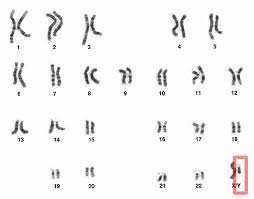 A number of recent studies looked at vitamin D and various diseases. All showed benefits of higher vitamin D levels in the blood: lower rates of cancer incidence, improved heart function in those with heart failure, lower rates of leukemia incidence, lower rates of breast cancer, and less aggressive breast and prostate cancer. However, one study found no benefits to vitamin D supplementation during pregnancy and the child's asthma risk. Older studies found low levels of vitamin D linked to higher risk of premenopausal breast cancer, and also to thicker melanomas at diagnosis (the thinner the melanoma, the better the prognosis).
A number of recent studies looked at vitamin D and various diseases. All showed benefits of higher vitamin D levels in the blood: lower rates of cancer incidence, improved heart function in those with heart failure, lower rates of leukemia incidence, lower rates of breast cancer, and less aggressive breast and prostate cancer. However, one study found no benefits to vitamin D supplementation during pregnancy and the child's asthma risk. Older studies found low levels of vitamin D linked to higher risk of premenopausal breast cancer, and also to thicker melanomas at diagnosis (the thinner the melanoma, the better the prognosis).
Everyone agrees that sunshine is an excellent source of vitamin D, but there is still disagreement over what are the best daily vitamin D supplement dosages, or even what are optimal levels of vitamin D in the blood (measured as serum 25-hydroxyvitamin D or 25(OH)D). In 2010, the Institute of Medicine (IOM) concluded that levels lower than 12 ng/ml represented a vitamin D deficiency and recommended a target of 20 ng/ml, which could be met in most healthy adults (ages 19 to 70) with 600 International Units of vitamin D each day. Since then most researchers have argued for higher blood serum levels: most agreeing that over 30 ng/ml is best, while some advocating 50 ng/ml or more. But even what's too high (and could cause problems) is debated. Many vitamin D supporters now advocate taking 800 to 1,000 IUs of vitamin D daily (some say up to 4000 IUs daily is OK). Remember to look for vitamin D3 supplements, not D2.
This study found that higher levels of vitamin D (measured as serum 25(OH)D) are better, with 25(OH)D concentrations of at least 40 ng/ml best to reduce cancer risk (all types of cancer). From Medical Xpress: Higher levels of vitamin D correspond to lower cancer risk, researchers say
Researchers at University of California, San Diego School of Medicine report that higher levels of vitamin D - specifically serum 25-hydroxyvitamin D - are associated with a correspondingly reduced risk of cancer. The findings are published in the April 6, online issue of PLOS ONE.
Garland and his late brother, Frank, made the first connection between vitamin D deficiency and some cancers in 1980 when they noted populations at higher latitudes (with less available sunlight) were more likely to be deficient in vitamin D, which is produced by the body through exposure to sunshine, and experience higher rates of colon cancer. Subsequent studies by the Garlands and others found vitamin D links to other cancers, such as breast, lung and bladder.
The new PLOS ONE study sought to determine what blood level of vitamin D was required to effectively reduce cancer risk....The only accurate measure of vitamin D levels in a person is a blood test....Cancer incidence declined with increased 25(OH)D. Women with 25(OH)D concentrations of 40 ng/ml or greater had a 67 percent lower risk of cancer than women with levels of 20 ng/ml or less.
Garland does not identify a singular, optimum daily intake of vitamin D or the manner of intake, which may be sunlight exposure, diet and/or supplementation. He said the current study simply clarifies that reduced cancer risk becomes measurable at 40 ng/ml, with additional benefit at higher levels. "These findings support an inverse association between 25(OH)D and risk of cancer," he said, "and highlight the importance for cancer prevention of achieving a vitamin D blood serum concentration above 20 ng/ml, the concentration recommended by the IOM for bone health."
From Science Daily: Vitamin D improves heart function, study finds
A daily dose of vitamin D3 improves heart function in people with chronic heart failure, a five-year research project has found. The study involved more than 160 patients who were already being treated for their heart failure using proven treatments including beta-blockers, ACE-inhibitors and pacemakers.
Participants were asked to take vitamin D3 or a dummy (placebo) tablet for one year. Those patients who took vitamin D3 experienced an improvement in heart function which was not seen in those who took a placebo....In the 80 patients who took Vitamin D3, the heart's pumping function improved from 26% to 34%. In the others, who took placebo, there was no change in cardiac function.
Disappointing results. From Medscape: Vitamin D Disappoints: Prenatal Supplementation and Childhood Asthma
Two recent clinical trials examined maternal supplementation with vitamin D and postpregnancy offspring outcomes for asthma and wheezing....However, with respect to preventing asthma in offspring, there is no clear evidence for vitamin D supplementation in pregnant women.
From PLOS ONE: Vitamin D Deficiency at Melanoma Diagnosis Is Associated with Higher Breslow Thickness
Vitamin D deficiency at the time of melanoma diagnosis is associated with thicker tumours that are likely to have a poorer prognosis. Ensuring vitamin D levels of 50 nmol/L or higher in this population could potentially result in 18% of melanomas having Breslow thickness of <0.75 mm rather than ≥0.75 mm.
Reported in 2013. From Medical Express: Low vitamin D levels linked to high risk of premenopausal breast cancer
A prospective study led by researchers from the University of California, San Diego School of Medicine has found that low serum vitamin D levels in the months preceding diagnosis may predict a high risk of premenopausal breast cancer. The study of blood levels of 1,200 healthy women found that women whose serum vitamin D level was low during the three-month period just before diagnosis had approximately three times the risk of breast cancer as women in the highest vitamin D group.
A 2011 meta-analysis by Garland and colleagues estimated that a serum level of 50 ng/ml is associated with 50 percent lower risk of breast cancer. While there are some variations in absorption, those who consume 4000 IU per day of vitamin D from food or a supplement normally would reach a serum level of 50 ng/ml.


 Good news for coffee lovers! Drinking 1 or more cups of coffee a day was associated with a reduced risk of heart failure in three large heart disease studies. However, drinking decaffeinated coffee was not.
Good news for coffee lovers! Drinking 1 or more cups of coffee a day was associated with a reduced risk of heart failure in three large heart disease studies. However, drinking decaffeinated coffee was not.